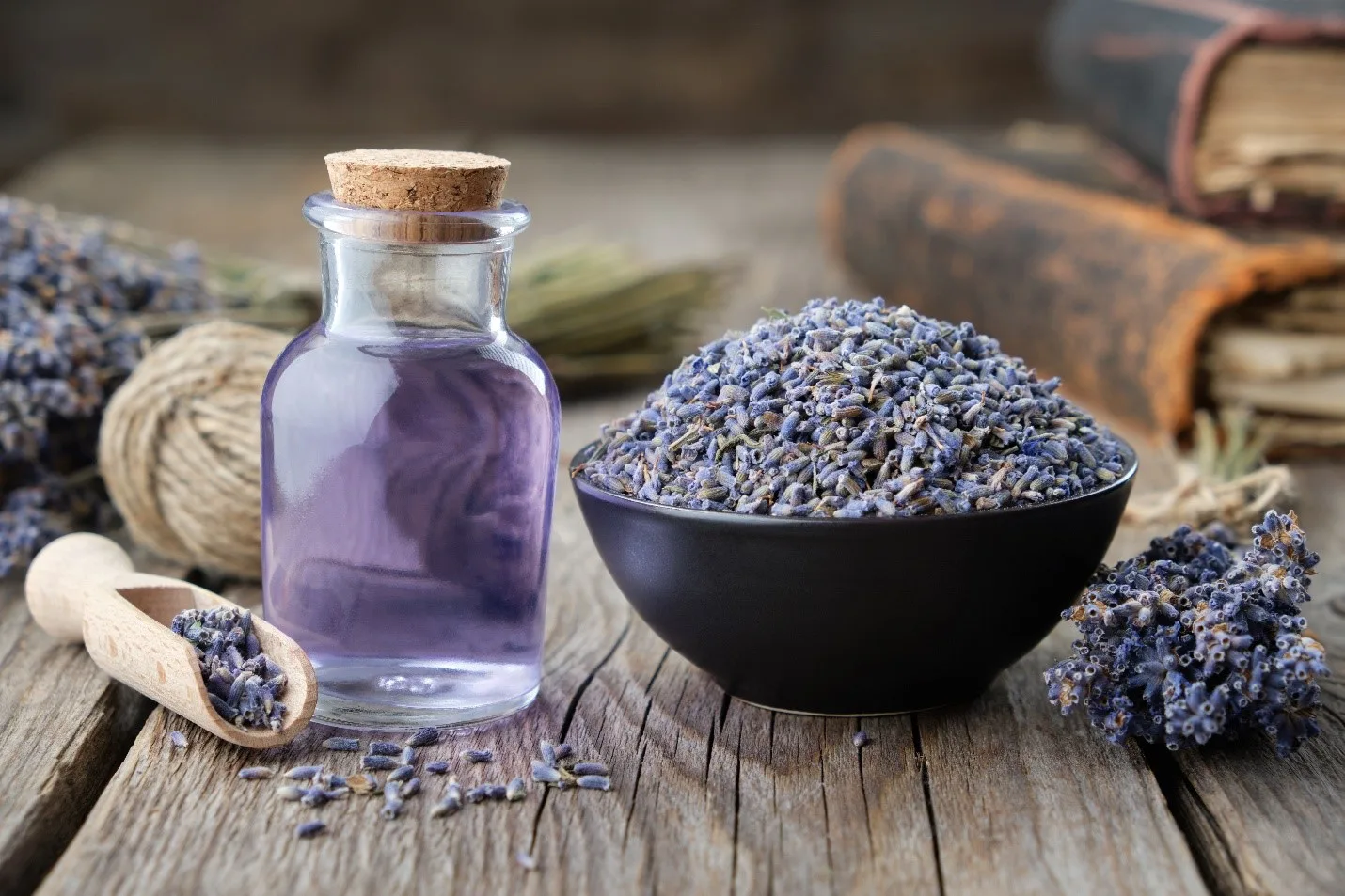Lavender Oil Benefits for Hair and Dandruff

What are the benefits of lavender oil?
How does lavender oil affect hair, scalp and dandruff?
How should you use lavender oil?
Any concerns with lavender oil?
It’s highly likely that you’ve come across lavender at some point in your life. This plant has distinctive purple or violet flowers and an even more distinctive smell. It’s cultivated across the world, being used in cooking, cosmetics, herbal medicines and fragrances.
However the oil extracted from this plant is becoming quite sought-after. It has a soothing aroma which is used in aromatherapy, often to counter anxiety and insomnia. The oil is also found in creams, shampoos, perfumes and alternative medicines. The benefits are varied, but the use of lavender essential oil for hair and scalp is growing in popularity.
What are the benefits of lavender oil?
This clear oil has been used for centuries in different ways, due to its inherent properties:
- Hair growth - Studies have shown benefits to using lavender oil for hair growth.
- Antiseptic - Topical application can help with wound healing and burns.
- Anti-microbial - Lavender oil can attack certain germs and microbes on your body.
- Stress reduction - It has shown to be an effective way to reduce your stress levels, which is one of the many lavender essential oil benefits for hair.
- Anti-inflammatory - It is said to soothe any breakouts of inflammation and can calm down your itching.
- Antioxidant - Lavender oil has potential antioxidant properties which can fight free radicals and reduce premature ageing.
- Moisturising - It can bring back hydration to your skin and your hair, another reason to use lavender essential oil for hair.
How does lavender oil affect hair, scalp and dandruff?
Your body’s ecosystem is extremely sensitive and can be disrupted quite easily, and nowhere is this more true than on your head. Dandruff , itching, dry hair, and dry scalp are just some of the problems you might face, which is where the use of lavender oil for hair and scalp comes in.
Hair-
Using lavender oil for hair growth is one of the main potential benefits, where it has shown to be effective on mice. However, it can also be useful for other aspects. This oil can help with moisture retention, thereby reducing frizz and split ends. It has been used widely for managing dull and damaged hair, where it can close up your cuticle layer. Massaging lavender oil onto your scalp can also boost blood circulation, which increases nutrient flow to your hair follicles.Dry scalp-
Lavender hair might be great, but this oil is also effective in your fight against a dry scalp. It can hydrate your scalp layers and prevent flaking of dead skin cells. This is a common condition, especially during the winter months. Using diluted lavender oil can potentially help you mitigate this problem.Dandruff-
This is an ailment affecting half of the world, which happens when a naturally occurring fungus starts breaking down any excessive oil on your scalp. It leads to an itchy scalp, redness and flaking. Using lavender oil for dandruff might be effective because it can attack the fungus. It can also help regulate oil levels on your scalp and soothe any itching.How should you use lavender oil?
To experience the potential lavender oil benefits for hair and scalp, you can use it in the following ways:
-
Mix with a carrier oil-
When using lavender oil you must dilute it with a carrier oil. You can use jojoba, coconut, almond or even olive oil. Create a mixture of these oils and apply it onto your hair and scalp. Ensure that you massage it onto your scalp. Leave it for about 5-10 minutes and then wash with a gentle shampoo. You can potentially also leave it overnight. The frequency should be based on your requirements. -
Add to shampoo-
You can directly add a few drops of lavender oil to your shampoo before you wash your hair. Lather it in and leave it for a few minutes. Rinse out thoroughly. -
Hair masks-
People often create their own homemade remedies and hair masks to extract the lavender oil benefits for hair. There are various combinations which work for specific issues. Rosemary oil, lavender oil and a carrier oil would be effective for dry hair and scalp. Tea tree oil, lavender oil and a carrier oil helps with dandruff and inflammation. You can also use aloe vera or lemon juice for help with these ailments.
Any concerns with lavender oil?
With any good comes the bad. There are certain things to keep in mind when using lavender oil:
-
Skin irritation-
Allergic reactions can happen based on how your body reacts to the lavender oil. Always conduct a patch test for 48 hours before using it on your head. -
Combining with other products-
Be careful when combining lavender oil with other ingredients and products, as it can lead to unintended reactions. -
Quantities-
The amount of lavender oil you use should be based on your hair type. Fine hair will require less oil. Excessive use of lavender oil can cause dull hair and other problems. -
Dandruff-
Using too much oil can increase the oil levels on your scalp and actually worsen your dandruff condition. -
Undiluted-
Never use undiluted lavender oil unless you have specific instructions to do so. This can be harsh on your skin and lead to harm.
Having lavender hair seems like a wonderful idea but it might not be the solution for all your problems. It all depends on how your body responds to the recipe you’re using, especially with dandruff. If you’re in a rush and need a dependable product, try the Head and Shoulders Silky Black . This can get rid of the dandruff causing germs and restore any dry, damaged hair strands. If your troubles don’t reduce, visit a dermatologist for a better understanding.



